Filter by
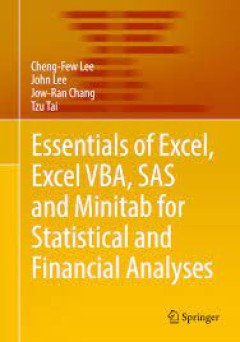
Essentials of Excel, Excel VBA, SAS and Minitab for Statistical and Financial…
This introductory textbook for business statistics teaches statistical analysis and research methods via business case studies and financial data using Excel, Minitab, and SAS. Every chapter in this textbook engages the reader with data of individual stock, stock indices, options, and futures. One studies and uses statistics to learn how to study, analyze, and understand a data set of partic…
- Edition
- -
- ISBN/ISSN
- 978-3-319-38867-0
- Collation
- 125 b/w illustrations, 781 illustrations in colour
- Series Title
- -
- Call Number
- -
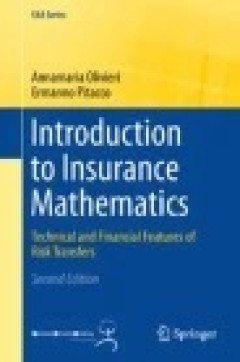
Introduction to Insurance Mathematics: Technical and Financial Features of Ri…
This second edition expands the first chapters, which focus on the approach to risk management issues discussed in the first edition, to offer readers a better understanding of the risk management process and the relevant quantitative phases. In the following chapters the book examines life insurance, non-life insurance and pension plans, presenting the technical and financial aspects of risk t…
- Edition
- -
- ISBN/ISSN
- 978-3-319-21377-4
- Collation
- -
- Series Title
- -
- Call Number
- -
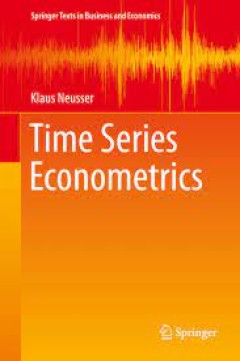
Time Series Econometrics
This text presents modern developments in time series analysis and focuses on their application to economic problems. The book first introduces the fundamental concept of a stationary time series and the basic properties of covariance, investigating the structure and estimation of autoregressive-moving average (ARMA) models and their relations to the covariance structure. The book then moves on…
- Edition
- -
- ISBN/ISSN
- 978-3-319-32862-1
- Collation
- 2 b/w illustrations, 64 illustrations in colour
- Series Title
- -
- Call Number
- -
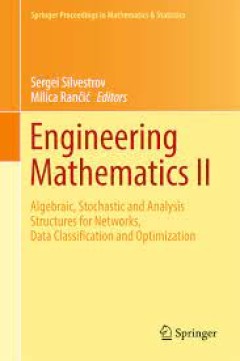
Engineering Mathematics II Algebraic, Stochastic and Analysis Structures for…
This book highlights the latest advances in engineering mathematics with a main focus on the mathematical models, structures, concepts, problems and computational methods and algorithms most relevant for applications in modern technologies and engineering. It addresses mathematical methods of algebra, applied matrix analysis, operator analysis, probability theory and stochastic processes, geome…
- Edition
- -
- ISBN/ISSN
- 978-3-319-42105-6
- Collation
- 20 b/w illustrations, 26 illustrations in colour
- Series Title
- -
- Call Number
- -

Engineering Mathematics I Electromagnetics, Fluid Mechanics, Material Physic…
This book highlights the latest advances in engineering mathematics with a main focus on the mathematical models, structures, concepts, problems and computational methods and algorithms most relevant for applications in modern technologies and engineering. In particular, it features mathematical methods and models of applied analysis, probability theory, differential equations, tensor analysis …
- Edition
- -
- ISBN/ISSN
- 978-3-319-42082-0
- Collation
- 68 b/w illustrations, 67 illustrations in colour
- Series Title
- -
- Call Number
- -
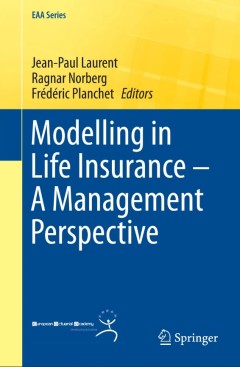
Modelling in Life Insurance – A Management Perspective
Focusing on life insurance and pensions, this book addresses various aspects of modelling in modern insurance: insurance liabilities; asset-liability management; securitization, hedging, and investment strategies. With contributions from internationally renowned academics in actuarial science, finance, and management science and key people in major life insurance and reinsurance companies, ther…
- Edition
- 1
- ISBN/ISSN
- 978-3-319-29774-3
- Collation
- XVI, 255
- Series Title
- EAA Series
- Call Number
- -
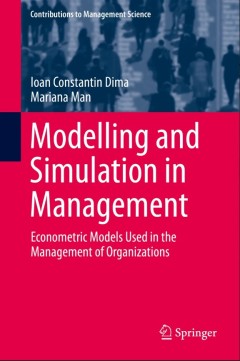
Modelling and Simulation in Management:Econometric Models Used in the Managem…
This book is a comprehensive introduction of the reader into the simulation and modelling techniques and their application in the management of organisations. The book is rooted in the thorough understanding of systems theory applied to organisations and focuses on how this theory can apply to econometric models used in the management of organisations. The econometric models in this book employ…
- Edition
- 1
- ISBN/ISSN
- 978-3-319-16591-2
- Collation
- XXII, 523
- Series Title
- Contributions to Management Science
- Call Number
- -
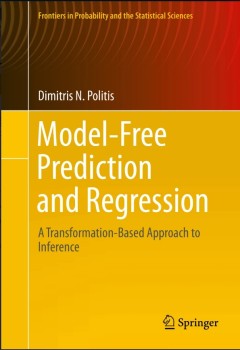
Model-Free Prediction and Regression
The Model-Free Prediction Principle expounded upon in this monograph is based on the simple notion of transforming a complex dataset to one that is easier to work with, e.g., i.i.d. or Gaussian. As such, it restores the emphasis on observable quantities, i.e., current and future data, as opposed to unobservable model parameters and estimates thereof, and yields optimal predictors in diverse set…
- Edition
- 1
- ISBN/ISSN
- 978-3-319-21346-0
- Collation
- XVII, 246
- Series Title
- Frontiers in Probability and the Statistical Sciences
- Call Number
- -
 Computer Science, Information & General Works
Computer Science, Information & General Works  Philosophy & Psychology
Philosophy & Psychology  Religion
Religion  Social Sciences
Social Sciences  Language
Language  Pure Science
Pure Science  Applied Sciences
Applied Sciences  Art & Recreation
Art & Recreation  Literature
Literature  History & Geography
History & Geography